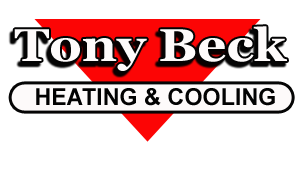Are you looking for an easy and practical way to improve your indoor air quality at home? Whole-house air purifiers are an excellent solution for removing pollutants such as allergens, dust, mold and other dangerous particles from the air. Purification systems can also remove airborne contaminants such as pet dander, mold spores and smoke, producing a healthier environment for everyone in the home. With the correct air purifier, you’ll have a powerful tool in your arsenal for healthier indoor air quality in Loganville.
Let’s explore the pros of an air purifier and why they are well worth purchasing.
Are Air Purifiers Actually Helpful?
Air purifiers are extremely effective at lowering levels of airborne particles like dust, mold spores, pollen, pet dander and smoke from the air. Some units are even strong enough to remove particularly small particles, such as those from odors or viruses, from your home’s air.
There are many models of air purifiers to choose from, ranging from compact, standalone models to whole-house air purifiers that work together with your central HVAC system. Depending on the style, some purifiers use effective air filters while others depend on ultraviolet (UV) light for its sanitation abilities. Some models even incorporate both for optimum air quality benefits.
What Does an Air Purifier Do?
Air purifiers draw in air from the home’s environment and trap harmful pollutants and particles as they move through a series of filters. These filters are made of fine mesh or activated carbon that is ideal for catching dust, molds, pet dander, smoke particles, chemicals and other airborne debris. The fan in the air purifier then pushes clean air directly into the ductwork for circulation.
How Do Air Purifiers Work?
Air purifiers bring in air with a fan before pushing it through one or more filters. Debris is gradually captured by the line of filters, and then the newly purified air is blown out of the purifier. Depending on its design, an air purifier may use electrical charges or ultraviolet light to clean out additional particulates.
Other types of filtration found in air purifiers:
- High Efficiency Particulate Air (HEPA) filters: One of the most effective filter designs available, HEPA filters are developed to clean out up to 99.97% of particles from the air—as tiny as 0.3 microns! Keep in mind that such efficiency can also minimize airflow.
- Activated carbon filters: These filters have finely ground activated carbon, which has an electric charge able to attract things like odor particles.
- Photocatalytic oxidation: This process uses UV light to start a reaction that breaks down microorganisms like bacteria, mold and some viruses. With their DNA damaged, many microbes can’t replicate and are basically eliminated.
Should I Get an Air Purifier for Dust?
Air purifiers are manufactured to help cut down on the amount of dust in your home, providing relief from allergies and other respiratory issues caused by airborne particulate matter. By capturing particles like dust in their filtration systems, air purifiers can make the air within a room or house less polluted and fresher.
If you’re looking to minimize the dust in your home, reach out to a certified Lennox dealer to upgrade your indoor air quality in Loganville.
Do Air Purifiers Help with Allergies?
High-efficiency air purifiers are designed to capture more than 99% of pollutants and particles, which means the air you breathe in after it is processed by an air purifier is significantly cleaner and healthier. This helps reduce symptoms linked to allergies and respiratory illnesses, because it removes potential irritants from the air.
Do Air Purifiers Help with Mold?
Air purifiers are one of the most efficient ways to counteract mold. By trapping airborne particles and spores, they help stop mold from turning into a health hazard in confined spaces. Additionally, many purifiers come with other features that are designed to overcome mold, such as activated carbon filters and ultraviolet (UV) lights. Activated carbon filters help get rid of smells and other unwanted elements from the air, while UV lights can kill any active mold spores in the air. Together, these features allow for a comprehensive cleaning of the air in your home or office, which helps keep everyone safe and healthy.
Will an Air Purifier Get Rid of Bad Smells?
Not only do air purifiers help raise air quality by removing particles like dust, pollen, smoke and other allergens from the air, but some air purifiers also help remove any nasty aromas that might be stubbornly refusing to leave your home.
Air purifiers use a combination of filters, including activated carbon and HEPA filters, to confine and clear out odors from the air you breathe inside your home. This assures that your home will remain smelling fresh and clean without any concern of lingering odors. By purchasing a whole-home air purifier, you can ensure that your home has optimal indoor air quality and smells fresh and clean all year-round.





